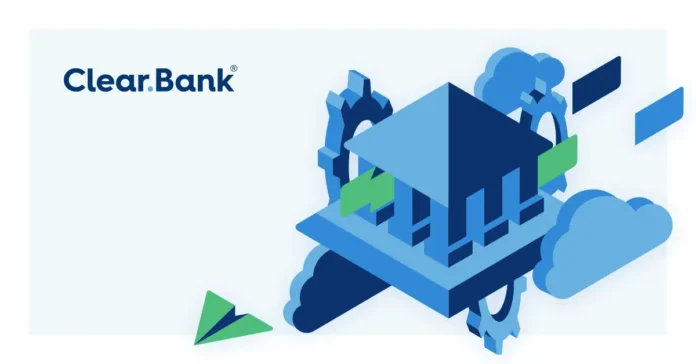Clear Bank a UK fintech that has built a new suite of cloud-based financial processes that enables banks and other customers to authorize payment transactions and other financial services in real time, has closed a large funding round, to take their services beyond the local market and move into areas, such as cryptocurrency exchanges or international expansion. The company raised $230 million from a single investor, private equity firm Apax Partners.
The startup, founded in 2015 and launched in 2017, does not disclose its valuation, but CEO Charles McManus said the company had previously raised £195m from investors including Canadian businessman John Risley and private equity firms PPF. Group and Norther Private Capital, and that its new valuation after the Apax investment is a significant increase. PitchBook notes that, at the end of December, ClearBank's valuation was just under £274m, which probably puts the current valuation at $590m at its most conservative estimate.
But the company's current size and ambitions speak to potentially larger numbers. Originally founded by Nick Ogden, who was also the founder of WorldPay (which Fidelity acquired for $43 billion, which at the time was the largest deal ever in the international payments industry). Clear Bank currently has 200 clients: large financial institutions and fintechs that use its infrastructure to enable faster transactions, with the list including UK companies such as Tide and Oaknorth, but also international companies such as Coinbase, which uses Clear Bank for clearing and payment services for its UK clients. Those clients cover some 13 million bank accounts and £3.000 billion ($4.000 billion) in assets.
The tech world has been awash in fintech for several years, with a wide swath of challenger banks; companies based on the concept of API and cloud computing and third-party “embedded” financial services; artificial intelligence, personalization and mobile applications; and a host of other technology-driven innovations, all hemmed in by the call to offer incumbents new and possibly better and easier-to-use approaches to spending, saving and investing money. The growth of e-commerce and other services on digital platforms has further fueled this trend.
But the existence of Clear Bank It underscores one of the untold truths amid all that innovation: Many of these new services have been built on top of legacy infrastructure. Some companies, such as Stripe, have created technology to get around some of the hurdles that arise as a result of this: for example, it can typically take days to reconcile and settle a transaction in traditional payment gateways. Fintechs like Stripe will offer faster processes not because they've rebuilt that infrastructure, but because they've used the technology to assess the overall risk of any individual transaction being declined and you're taking the calculated risk, charging extra fees to provide that service (and for that matter). set to make money from those transactions that compensate for any of them that are not carried out).
"Europe and the United States have been a long time modernizing," McManus said. “26 countries are just implementing the payment scheme faster payments that the UK has had for a long time. You just have to look at the discussions about SWIFT and the Russia cutoff, and how slow progress has been going.”
The alternative is to build a new version of that infrastructure from scratch that just works faster, which is what Clear Bank says he has done.
Clear Bank describes itself as the first clearing bank to open in the UK in 250 years (the 'big four' that have ruled clearing in the country so far are Barclays, Lloyds, HSBC and NatWest) and aims to use the paths it has built to operate faster UK payment services for incumbents, and continue to expand it to more services in its home market, as well as take them overseas.
"Our goal is to provide real-time services for everything," McManus said. As he explains it, Clear Bank has integrated everything into a single solution, which not only means that the money being moved goes through one system instead of several different channels, but it also allows those who connect to its system to have "better visibility" into how funds move. . "That means a higher level of convenience, visibility and faster transactions," he said.
Today, the company provides Bank as a Service (BaaS) to its customers for both their personal and business needs, as well as for them, in turn, to provide to their customers. It also provides links to the four main channels used in the UK to handle payments, Faster Payments, BACS, CHAPS and Direct Debit.
The company launched multi-currency and foreign exchange services for UK customers several months ago, and plans for investment will include expanding to other currencies and facilitating interbank payments, both to provide the services to existing customers with international needs. and to work with clients in other markets.
One of the great changes that Fintechs have brought is that it has become significantly easier for non-financial companies to integrate financial services, and in the bid to increase revenues and points of contact with customers, many have done so. That means a huge opportunity for companies that are embracing that adoption.
“All companies are becoming fintech companies, and Clear Bank it provides them with the integrated banking and clearing infrastructure, starting with the fintech companies themselves,” Mark Beith, partner at Apax Digital, said in a statement. “We have seen the power of their platform firsthand, and we are excited to partner with Charles and existing shareholders to make it Clear Bank be global."
The rise of Clear Bank it points to how, as fintech continues to mature, we are beginning to see a new generation of startups emerge that are willing to tackle that last level of infrastructure. Just earlier this week, a startup from Germany called payrails (the ambition is in their name) also launched with funding from a16z with their own ideas to build new infrastructure to handle payments specifically for the marketplace and other businesses that are in the middle of complex transactional architectures.





